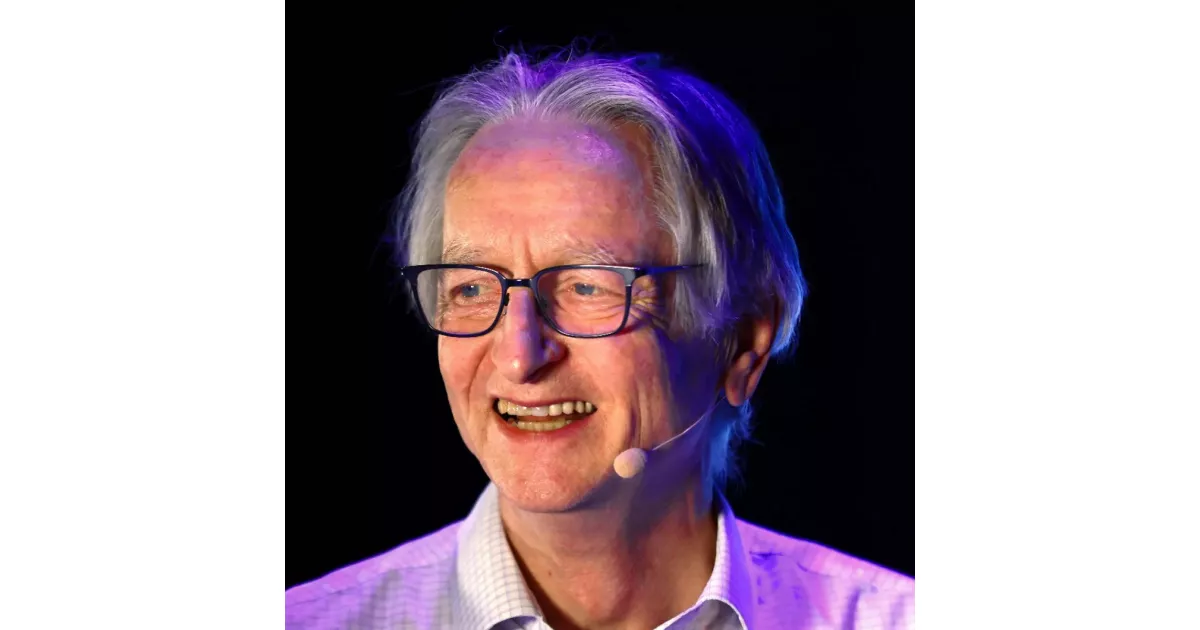Geoffrey Everest Hinton is a renowned British-Canadian computer scientist, cognitive psychologist, and pioneer in artificial intelligence. He's earned the moniker "Godfather of AI" for his groundbreaking work on artificial neural networks, which has revolutionized machine learning and deeply impacted fields like computer vision and speech recognition.
December 1947: Birth of Geoffrey Hinton
Geoffrey Everest Hinton was born in December 1947.
1970: Hinton Graduates from Cambridge with a BA in Experimental Psychology
Geoffrey Hinton graduated from King's College, Cambridge, in 1970 with a Bachelor of Arts degree in experimental psychology.
1970: Linnainmaa Proposes Reverse-Mode Automatic Differentiation
Seppo Linnainmaa proposed reverse-mode automatic differentiation, a precursor to backpropagation, in 1970.
1974: Werbos Suggests Using Reverse-Mode AD for Neural Networks
Paul Werbos proposed using reverse-mode automatic differentiation to train neural networks in 1974.
1978: Hinton Earns PhD in Artificial Intelligence from the University of Edinburgh
Geoffrey Hinton was awarded a PhD in artificial intelligence from the University of Edinburgh in 1978.
1985: Hinton Co-invents Boltzmann Machines
In 1985, Geoffrey Hinton, alongside David Ackley and Terry Sejnowski, co-invented Boltzmann machines, a significant contribution to the field of neural networks.
1986: Publication of Influential Backpropagation Paper
Geoffrey Hinton co-authored a highly cited paper in 1986 that significantly popularized the backpropagation algorithm for training multi-layer neural networks.
September 1992: Hinton Publishes Article on Neural Network Research in Scientific American
Geoffrey Hinton's research on neural networks was featured in an accessible article published in the September 1992 issue of Scientific American.
October 1993: Hinton Publishes Second Article in Scientific American
Geoffrey Hinton further elaborated on his neural network research in a follow-up article published in the October 1993 issue of Scientific American.
1994: Passing of Second Wife Rosalind Zalin
In 1994, Geoffrey Hinton's second wife, Rosalind Zalin, passed away due to ovarian cancer, marking a tragic event in his personal life.
1998: Hinton Elected Fellow of the Royal Society
Geoffrey Hinton was elected a Fellow of the Royal Society (FRS) in 1998, a testament to his significant contributions to science.
2001: Hinton Receives Honorary Doctorate from University of Edinburgh
Geoffrey Hinton's alma mater, the University of Edinburgh, bestowed upon him an honorary doctorate in 2001.
2001: Hinton Wins First Rumelhart Prize
In 2001, Geoffrey Hinton received the inaugural Rumelhart Prize, recognizing his outstanding contributions to the field of cognitive science.
2005: Hinton Receives IJCAI Award for Research Excellence
Geoffrey Hinton was honored with the IJCAI Award for Research Excellence lifetime-achievement award in 2005, recognizing his sustained and impactful contributions to the field of artificial intelligence.
2007: Hinton Publishes Paper on Unsupervised Learning
Geoffrey Hinton co-authored a research paper titled "Unsupervised learning of image transformations" in 2007, advancing the understanding of how machines can learn without explicit instructions.
2008: Hinton Develops t-SNE Visualization Method
In 2008, Geoffrey Hinton, in collaboration with Laurens van der Maatens, developed the t-SNE (t-distributed stochastic neighbor embedding) visualization method, a valuable tool for visualizing high-dimensional data.
2011: Hinton Awarded Herzberg Canada Gold Medal
Geoffrey Hinton was awarded the prestigious Herzberg Canada Gold Medal for Science and Engineering in 2011, highlighting his exceptional contributions to Canadian research.
2012: AlexNet Achieves Image-Recognition Breakthrough
Hinton, along with his students Alex Krizhevsky and Ilya Sutskever, designed AlexNet, which achieved a breakthrough in computer vision during the ImageNet challenge in 2012.
2012: Hinton Receives Canada Council Killam Prize
In 2012, Geoffrey Hinton received the Canada Council Killam Prize in Engineering, further recognizing his groundbreaking work in artificial intelligence and neural networks.
2012: Hinton Teaches Online Course on Neural Networks
In 2012, Geoffrey Hinton taught a free online course on Neural Networks on the Coursera platform, making his knowledge accessible to a wider audience.
March 2013: Hinton's Company Acquired by Google
Geoffrey Hinton's company, DNNresearch Inc., was acquired by Google in March 2013, leading to his role at Google Brain.
2013: Hinton Joins Google and the University of Toronto
Geoffrey Hinton began dividing his time between Google (Google Brain) and the University of Toronto in 2013.
2013: Hinton Awarded Honorary Doctorate from Université de Sherbrooke
The Université de Sherbrooke awarded Geoffrey Hinton an honorary doctorate in 2013.
2016: Hinton Awarded BBVA Foundation Frontiers of Knowledge Award
Geoffrey Hinton received the BBVA Foundation Frontiers of Knowledge Award in the Information and Communication Technologies category in 2016.
2016: Hinton Elected to National Academy of Engineering
Geoffrey Hinton was elected as a foreign member of the prestigious National Academy of Engineering in 2016.
November 2017: Hinton Publishes Papers on Capsule Neural Networks
Geoffrey Hinton released two open-access research papers in November 2017, introducing the concept of capsule neural networks, which he believed held great promise for the future of deep learning.
2017: Co-founds Vector Institute
In 2017, Geoffrey Hinton co-founded the Vector Institute in Toronto, dedicated to advancing artificial intelligence research and applications.
2017: Call for Ban on Lethal Autonomous Weapons
In 2017, Geoffrey Hinton expressed concerns about the misuse of AI and called for an international ban on lethal autonomous weapons, highlighting the difficulty in preventing malicious use of AI technologies by bad actors.
September 2018: Passing of Third Wife Jackie
In September 2018, Geoffrey Hinton's third wife, Jackie, passed away due to cancer. This personal loss marked a significant moment in Hinton's life.
2018: Hinton Appointed Companion of the Order of Canada
Geoffrey Hinton was appointed as a Companion of the Order of Canada in 2018.
2018: Hinton Wins Turing Award with LeCun and Bengio
Geoffrey Hinton, along with Yann LeCun and Yoshua Bengio, were jointly awarded the prestigious Turing Award in 2018 for their groundbreaking contributions to deep learning.
2018: Hinton Awarded Turing Award
Geoffrey Hinton, alongside Yoshua Bengio and Yann LeCun, received the prestigious Turing Award, often referred to as the "Nobel Prize of Computing," in 2018 for their groundbreaking work on deep learning.
2018: Optimism About AI's Economic Impact
In 2018, Geoffrey Hinton expressed optimism regarding the economic impact of AI. He believed that while AI would replace routine tasks, it wouldn't make humans redundant, and emphasized AI's potential to enhance productivity without replacing human roles entirely.
2018: Hinton Acknowledges Rumelhart's Contribution to Backpropagation
In a 2018 interview, Geoffrey Hinton acknowledged that the fundamental idea behind backpropagation originated from David E. Rumelhart.
2021: Hinton Receives Dickson Prize in Science
Carnegie Mellon University honored Geoffrey Hinton with the Dickson Prize in Science in 2021.
2022: Hinton Introduces "Forward-Forward" Algorithm
At the 2022 Conference on Neural Information Processing Systems, Geoffrey Hinton presented a novel learning algorithm for neural networks called the "Forward-Forward" algorithm, proposing an alternative to traditional backpropagation methods.
2022: Hinton Wins Princess of Asturias Award
Geoffrey Hinton, along with Yann LeCun, Yoshua Bengio, and Demis Hassabis, received the Princess of Asturias Award in the Scientific Research category in 2022.
March 2023: Hinton's Concerns About AI Progress
In March 2023, Geoffrey Hinton expressed his concerns about the rapid progress of AI. He suggested that artificial general intelligence, which he previously thought was decades away, could arrive in less than 20 years and have transformative effects comparable to the industrial revolution.
May 2023: Hinton Voices Concerns About AI Risks
Following his resignation from Google in May 2023, Geoffrey Hinton publicly voiced his concerns about the potential risks posed by artificial intelligence, including deliberate misuse, technological unemployment, and existential threats.
May 2023: Hinton Resigns from Google
In May 2023, Geoffrey Hinton announced his resignation from Google, citing his desire to speak freely about the dangers of AI. He expressed regret over aspects of his life's work and voiced fears about a competitive race between tech giants like Google and Microsoft.
May 2023: Hinton Resigns from Google, Citing AI Concerns
In a significant move in May 2023, Geoffrey Hinton announced his resignation from Google, expressing concerns about the potential risks associated with artificial intelligence technology.
May 2023: AI Surpassing Human Brain Capacity
In early May 2023, Geoffrey Hinton claimed that AI might soon surpass the information capacity of the human brain. He highlighted the potential risks of AI chatbots, which can learn and share information autonomously, posing significant challenges.
May 2023: Hinton Expresses Regret Over Life's Work
Upon resigning from Google in May 2023, Geoffrey Hinton admitted to having some regrets about his life's work, driven by concerns about the potential negative implications of artificial intelligence.
2023: Concerns About AI's Impact on Jobs
In 2023, Geoffrey Hinton expressed concerns that AI technologies might disrupt the job market significantly, taking away more than just routine work. He suggested that government intervention, such as universal basic income, might be necessary to address growing inequality.
2023: Hinton Named ACM Fellow
The Association for Computing Machinery (ACM) recognized Geoffrey Hinton as an ACM Fellow in 2023.
June 2024: Hinton Joins Canadian Institute for Advanced Research
As of June 2024, Geoffrey Hinton became an advisor for the Learning in Machines & Brains program at the Canadian Institute for Advanced Research.
August 2024: Support for AI Safety Legislation
In August 2024, Geoffrey Hinton co-authored a letter with prominent figures supporting SB 1047, a California AI safety bill. The legislation aimed to mandate risk assessments for AI models costing over $100 million, which they deemed essential for effective regulation.
2024: Nobel Prize in Physics Awarded to Hinton
Geoffrey Hinton was awarded the 2024 Nobel Prize in Physics, shared with John Hopfield, in recognition of their contributions to the understanding of complex systems and the development of artificial neural networks.
2024: Advocacy for Universal Basic Income
In 2024, Geoffrey Hinton reiterated his belief that AI could exacerbate economic inequality and advocated for the British government to establish a universal basic income to mitigate the impact of AI on the job market and societal wealth distribution.
2024: Awarded the Nobel Prize in Physics
In 2024, Geoffrey Hinton was jointly awarded the Nobel Prize in Physics with John Hopfield for their foundational discoveries and inventions that enable machine learning with artificial neural networks. The citation specifically mentioned Hinton's development of the Boltzmann machine.
Mentioned in this timeline

Google LLC is a multinational technology company specializing in online...
California is a U S state on the Pacific Coast...
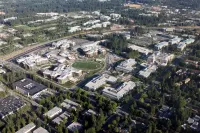
Microsoft an American multinational technology corporation headquartered in Redmond Washington...
Canada is a North American country the second largest in...

Trains are a connected series of vehicles traveling on railway...

September is the ninth month of the year in the...
Trending
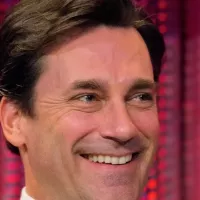
53 minutes ago Jon Hamm Discovers Viral Dancing Meme; Reacts to Meme-Worthy Status at 54.

53 minutes ago Georgia: Missing child found safe after Amber Alert issued in Barrow County.

2 hours ago Selena Gomez Defends Benny Blanco Amid Dirty Feet Frenzy and Divorce Comments.
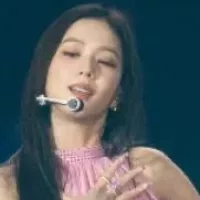
2 hours ago Blackpink Announces New Album 'DEADLINE' and Teases New Era.
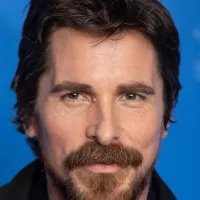
2 hours ago Christian Bale transforms for 'The Bride,' calls character 'old-fashioned,' praises Gyllenhaal's script.
2 hours ago Jaden McDaniels' rise with Timberwolves foreseen by Crawford; joins Leonard's exclusive group.
Popular

Jesse Jackson is an American civil rights activist politician and...

Susan Rice is an American diplomat and public official prominent...

Barack Obama the th U S President - was the...

XXXTentacion born Jahseh Dwayne Ricardo Onfroy was a controversial yet...

Michael Joseph Jackson the King of Pop was a highly...

Kashyap Pramod Patel is an American lawyer who became the...
